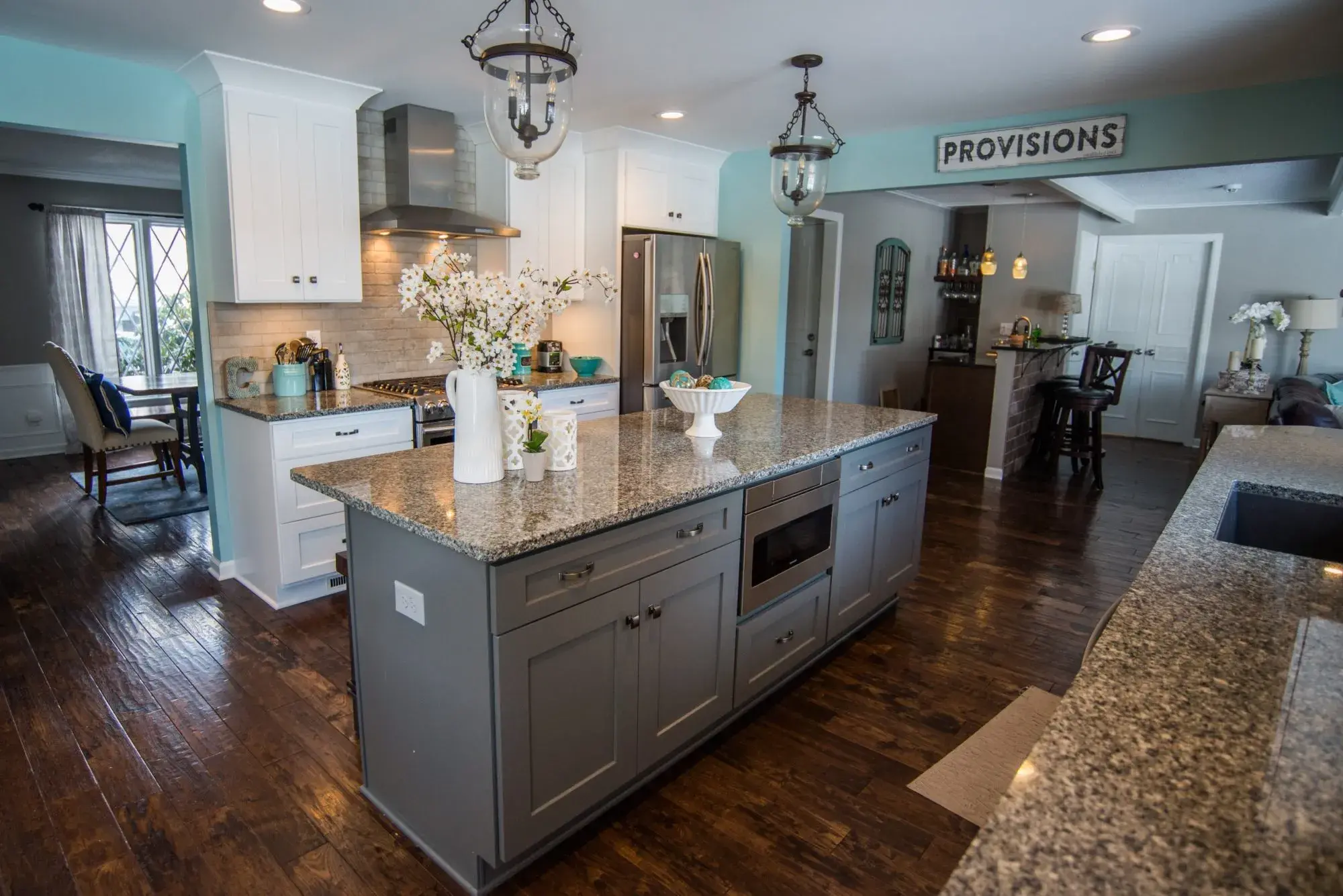
Is Your Home’s Insurance at Risk? The Roofing Clause Most San Diegans Miss
Lower your energy bills and stay cool this summer with a Cool Roof. Discover benefits, materials, savings, and expert tips for San Diego homes.

Lower your energy bills and stay cool this summer with a Cool Roof. Discover benefits, materials, savings, and expert tips for San Diego homes.
At Peak Builders, we know that your home deserves the best. Whether you’re in need of a new roof or looking to remodel your space, we’re here to help. We’ll discuss your unique needs, desired style, and the options that will work best for your home.

Peak Builders & Roofers of San Diego is a trusted general contractor offering a wide range of services, including home remodeling, room additions, bathroom and kitchen remodeling.
When it comes to giving your home a fresh new look, home remodeling services can transform any space into something truly special. Remodeling is a great way to revive your home.
It can redesign your kitchen, update your bathroom, or rearrange your space. Every San Diego home should shine, in our opinion at Peak Builders and Roofers of San Diego, and with the right strategy, your ideal renovation is only a few steps away. Let’s explore some of the most exciting trends, expert tips, and smart strategies for successful home remodeling in San Diego.
San Diego homeowners are embracing trendy, stylish, and functional remodels. Whether you’re looking to open up your floor plan or add the latest tech to your home, these trends are worth considering for your home remodeling in San Diego:
Considering an update? Home remodeling services can help you adopt these trends. They also enhance your home’s functionality and comfort.
Embarking on a home remodeling in the San Diego project can feel overwhelming, but with careful planning, you can avoid many common pitfalls.

Living in a smaller home doesn’t mean sacrificing comfort or style. Home remodeling in San Diego often focuses on maximizing every square foot.
Personalized storage, such as integrated shelves and cupboards, reduces clutter and elongates spaces. In the meantime, multipurpose furniture saves room and provides functionality, such as beds with storage or fold-out workstations. Placed properly, mirrors can reflect light and provide the impression of a larger space. Bulky cabinetry is reduced in bathrooms and kitchens with open shelves, creating the illusion of more open and breezy tiny spaces.
Sustainability has become a major consideration in home remodeling in San Diego. Many homeowners want to reduce their environmental impact while saving on energy costs.
Double-pane windows that save energy significantly improve the efficiency of your house. By installing low-flow showerheads and faucets, you may conserve water without compromising comfort. Reclaimed wood and repurposed materials are environmentally friendly and provide originality. Even though solar panels are expensive initially, they save a lot of money over time.
San Diego’s emphasis on energy efficiency and green living makes it the perfect place to implement these sustainable enhancements.

It’s hard but rewarding to balance modern innovation with traditional charm. For those interested in home remodeling in San Diego, blending both styles can create a home that feels timeless and sophisticated.
Combining different materials, such as warm wood with sleek steel or glass, results in a well-balanced and fashionable look. Use neutral flooring and walls to start. Then, use antique lighting or historic furniture to create striking accents. Combine polished materials with bare brick or stone to create layered textures. This adds complexity and fascination.
This blend of styles is a popular choice in San Diego, where the city’s historical homes often meet modern design trends. Peak Builders and Roofers of San Diego specializes in creating renovations that bridge the gap between old and new, ensuring a unique result.
The success of your home remodel largely depends on the contractor you choose. It’s crucial to find a nearby contractor with a proven track record. Here’s what to look for when selecting a contractor for “home remodeling near me
When selecting a contractor, look for one with experience on projects similar to yours, ensuring they have the expertise you need. It’s also essential to choose someone with local knowledge, especially for home remodeling in San Diego, as they’ll be familiar with local codes, trends, and climate needs. Always confirm that your contractor is licensed and insured to protect your home and yourself during the remodel.
Good communication is key, so opt for a contractor who keeps you informed throughout the process. Lastly, check references and Online reviews show that Peak Builders and Roofers of San Diego is a reliable choice.
Remodeling can be expensive, but careful budgeting can help you stay on track without breaking the bank. For your home remodeling in San Diego project, here are some strategies to keep your finances in check:
The timeline depends on the scope of your project. A small remodel may take a few weeks, while larger projects can extend over several months. Always discuss the schedule with your contractor to set realistic expectations for your home remodeling San Diego project.
Concentrate on high-impact areas like the kitchen and bathroom, as these tend to offer the best return on investment. You can also consider energy-efficient upgrades, which are popular with buyers in the home remodeling near me market.
Avoid underestimating costs, neglecting permits, and failing to hire an experienced contractor. Working with a trusted company like Peak Builders and Roofers of San Diego ensures you avoid these pitfalls.
Consider durability, style, and budget when selecting materials. For home remodeling in San Diego, materials that withstand the local climate are key.
Upgrading to energy-efficient appliances, installing better insulation, and choosing energy-saving windows are great ways to reduce energy use during your remodel.
Get in Touch
Making homes beautiful one roof at a time! Peak Builders & Roofers of San Diego are your go-to experts for residential & commercial roof installation and remodeling in the greater San Diego County.
License #: 1008986
Copyright 2023 | Privacy